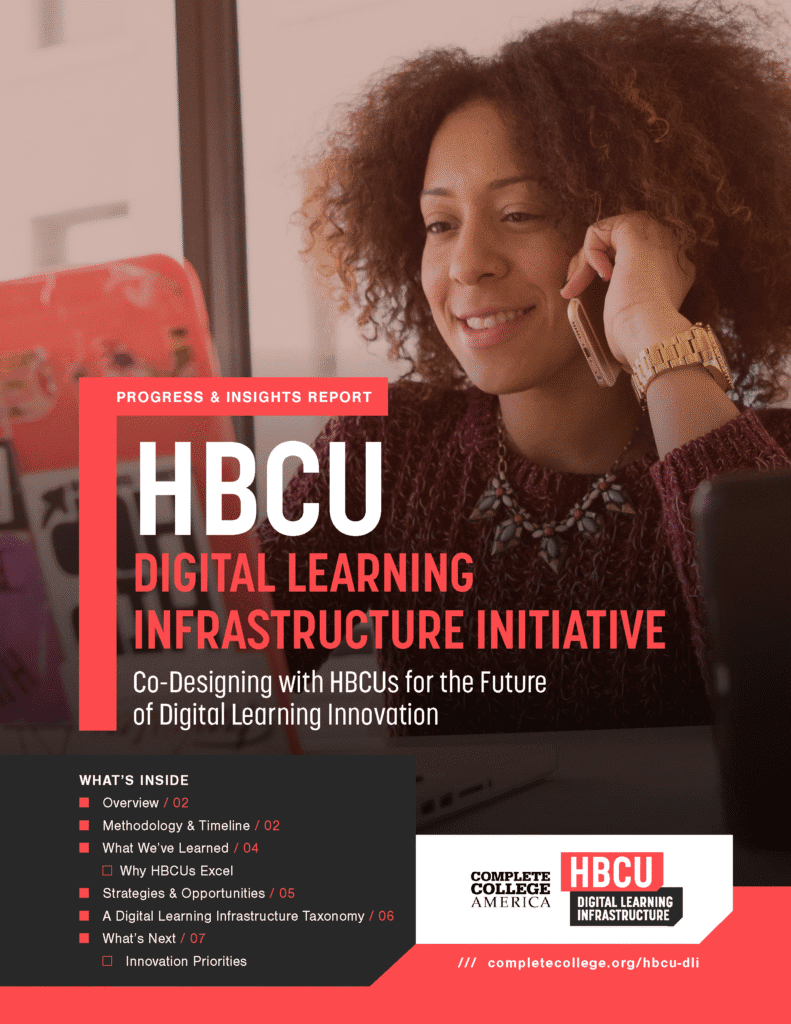
Since their founding, Historically Black Colleges and Universities (HBCUs) have proven that institutions built with Black learners at the center can lead to extraordinary results for students. According to UNCF, HBCUs represent just 3% of colleges and universities in the United States yet produce 20% of Black graduates. And they do this in the face of long odds, having to overcome systemic injustices that leave them with far fewer resources than non-HBCUs. Their success is a model for innovative, student-centered success that deserves broader recognition.
But what does the future of HBCUs look like given the increasing demand for more flexible and responsive digital learning? That is the question at the center of the HBCU Digital Learning Infrastructure Initiative, a multi-year effort designed to understand the insights, opportunities, and challenges related to digital learning innovation. Digital learning infrastructure, generally speaking, is defined as the ways technology is being used to enhance all aspects of the student experience—from academics and engagement to wellness and support.
In partnership with the Gates Foundation, a cohort of six HBCUs, and an Advisory Council comprised of advisors and subject matter experts from across the sectors, Complete College America has been working to co-design a strategy for future investment. The strategy will be rooted in the innovations happening on leader campuses and universities and informed by the gaps and barriers identified as a part of the process. In the end, our focus is the same as always: college completion and student success.
